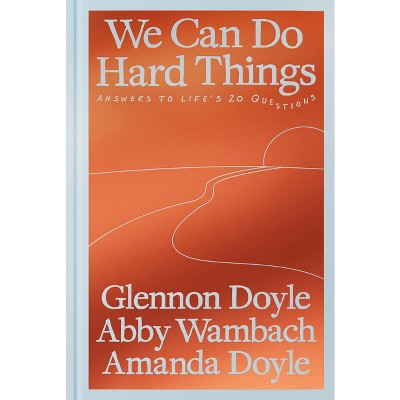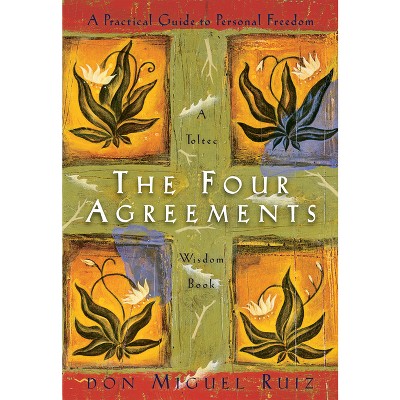Weaving Histories - (British Academy Monographs) by Karuna Dietrich Wielenga (Hardcover)

About this item
Highlights
- Weaving Histories looks at the economic history of South Asia from a fresh perspective, through a detailed study of the handloom industry of South India between 1800 and 1960, drawing out its wider implications for the Indian economy.
- About the Author: After obtaining her Ph.D from the University of Delhi, Karuna Dietrich Wielenga was a Newton International Fellow at Oxford University.
- 272 Pages
- History, Asia
- Series Name: British Academy Monographs
Description
About the Book
This book looks at the economic history of south Asia from a fresh perspective, through a detailed study of the handloom industry in colonial south India.Book Synopsis
Weaving Histories looks at the economic history of South Asia from a fresh perspective, through a detailed study of the handloom industry of South India between 1800 and 1960, drawing out its wider implications for the Indian economy. It employs an unusual array of sources, including paintings and textile samples as well as archival records, to excavate the links between cotton growing, cleaning, spinning and weaving before the nineteenth century. The rupture and re-configuration of these links produced a sea-change in the lives of ordinary weavers. Weaving Histories examines the configuration of forceslocal, regional, national and globalthat drove this transformation, and uncovers its effects on different groups of weavers.
The handloom industry is used as a case study to throw light on the historical emergence of the 'informal sector' in India, and to re-examine contemporary debates about industrialisation and economic development.Review Quotes
Weaving History is an exceptional scholarly work that not only engages lively with these debates but indeed also offers answers and insightful analysis. To begin with the book combines different traditions to produce an excellent outcome. It bridges economic, social, cultural, and labor history while it rarely compromises on any of these fronts. The length and breadth of the sources employed in the book is similarly truly impressive ... Weaving History is thus an outstanding contribution to existing debates and would hopefully bring new life to some of the classical questions concerning the economic/social nexus.
-- "Nikolay Kamenov, H-Soz-Kult"By providing the local, granular details of handloom production, Weaving Histories not only sets the stage for a nuanced understanding of a sophisticated industry within a complex socioeconomic environment but also offers greater targeted insights into its technical, social, and economic operations.
-- "Alka Raman, Victoriaand Albert Museum, Technology and Culture, Volume 63, Number 1"In Weaving Histories, Karuna Dietrich Wielenga mobilizes an impressive range of sources to show that for at least south India many of the truisms often repeated are, if not incorrect, then surely imprecise. To understand the important revisionist work of this book, the author provides a careful analysis not just of weaving but also of raw cotton cultivation and spinning.
-- "Giorgio Riello, European University Institute, Labour History Review""In Weaving Histories, Karuna Dietrich Wielenga mobilizes an impressive range of sources to show that for at least south India many of the truisms often repeated are, if not incorrect, then surely imprecise. To understand the important revisionist work of this book, the author provides a careful analysis not just of weaving but also of raw cotton cultivation and spinning." -- Giorgio Riello, European University Institute, Labour History Review"By providing the local, granular details of handloom production, Weaving Histories not only sets the stage for a nuanced understanding of a sophisticated industry within a complex socioeconomic environment but also offers greater targeted insights into its technical, social, and economic operations." -- Alka Raman, Victoriaand Albert Museum, Technology and Culture, Volume 63, Number 1"Weaving History is an exceptional scholarly work that not only engages lively with these debates but indeed also offers answers and insightful analysis. To begin with the book combines different traditions to produce an excellent outcome. It bridges economic, social, cultural, and labor history while it rarely compromises on any of these fronts. The length and breadth of the sources employed in the book is similarly truly impressive ... Weaving History is thus an outstanding contribution to existing debates and would hopefully bring new life to some of the classical questions concerning the economic/social nexus." -- Nikolay Kamenov, H-Soz-Kult"Karuna Dietrich Wielenga's Weaving Histories is a more conventional mix of economic, social, and technological history for a much larger and morediverse part of India. The book covers almost all major weaving clusters in the four southern states. The method suits the longer timespan covered in the book, especially when constructing a narrative for the nineteenth century, which saw cyclical and often contradictory tendencies. The book handles that challenge through a systematic combination of different kinds of data, including a statistical reconstruction based on archival reports that willserve as a valuable reference resource for future research on South India." -- Tirthankar Roy, Textile History
About the Author
After obtaining her Ph.D from the University of Delhi, Karuna Dietrich Wielenga was a Newton International Fellow at Oxford University. She is a historian of south Asia and her research interests span economic, social and labour history. She has worked on the history of handlooms, labour legislation, and the emergence of the informal sector in India. Her papers have been published in Modern Asian Studies and the International Review of Social History among other journals. She currently teaches at Azim Premji University in Bangalore, India. She is a research associate of the Centre for South Asian Studies, Oxford School of Global and Area Studies.
Shipping details
Return details
Trending Non-Fiction






Discover more options





